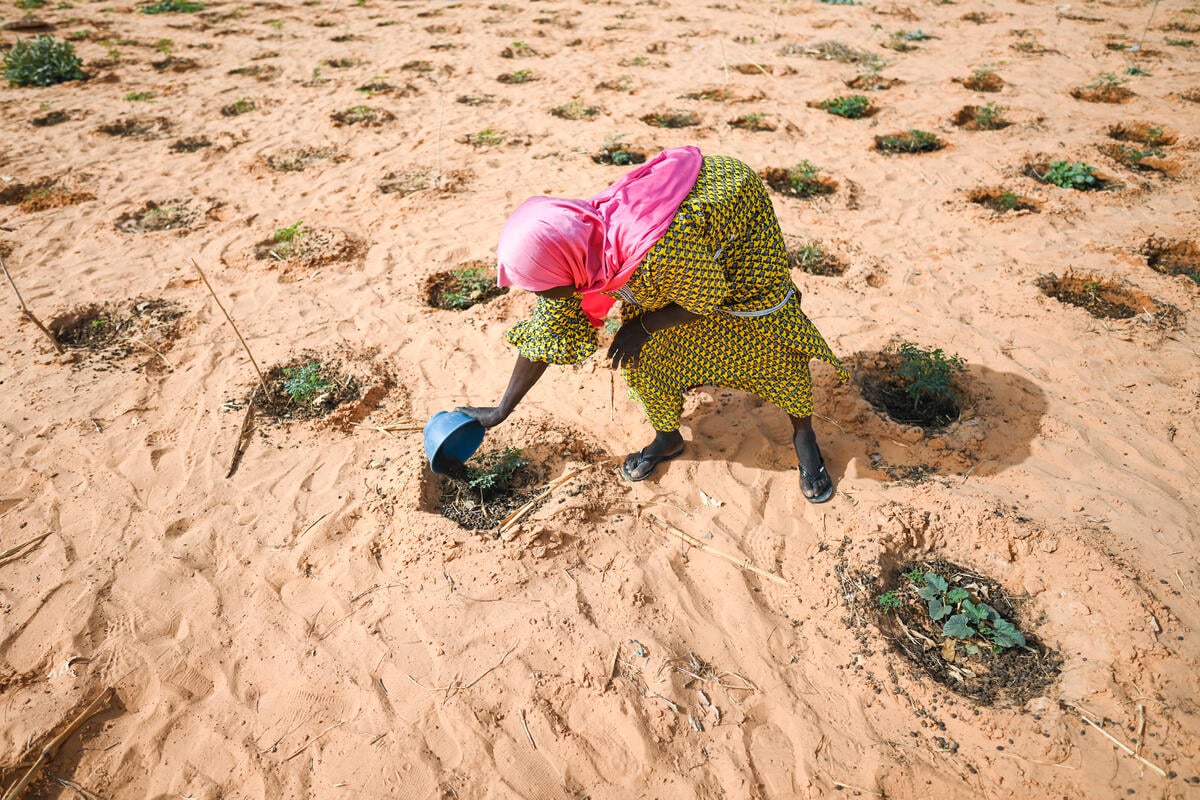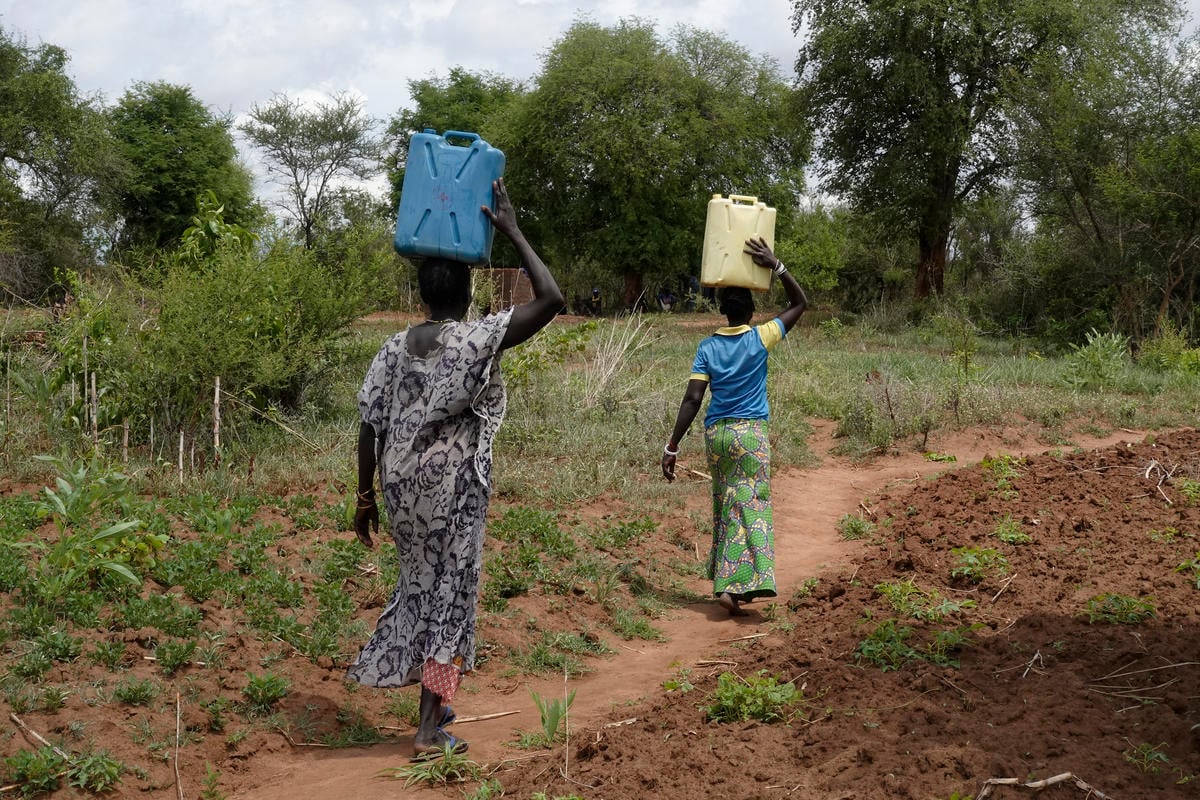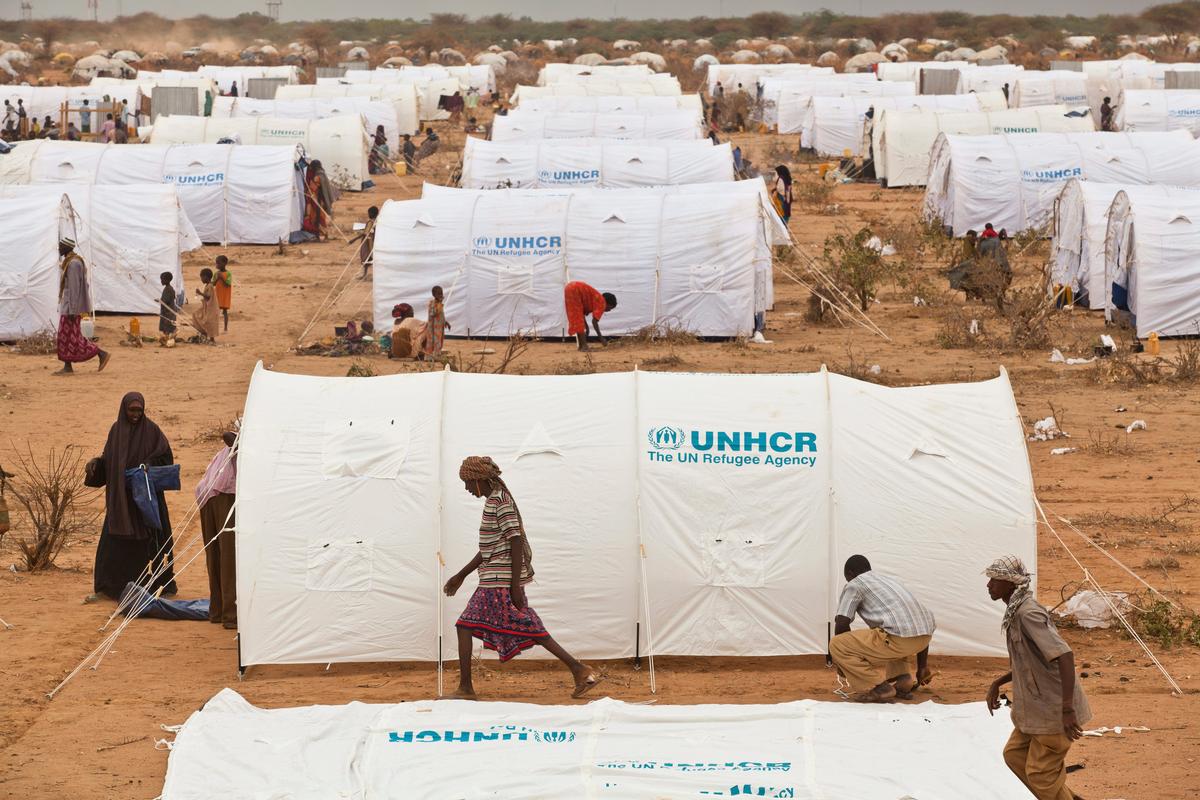Curbing time-consuming, dangerous searches for firewood
Curbing time-consuming, dangerous searches for firewood

DADAAB, Kenya, 15 July (UNHCR) - Two years ago Amina Noor was seeking firewood on the edge of the Dadaab camp with relatives when an armed man appeared, shouting that they were stealing his trees. The pregnant woman fell as she fled, killed possibly by a heart attack.
Now her 18-year-old nephew Abudullahi Abdi spends his afternoons after school pushing a wheelbarrow across the land in search of firewood. Despite the danger - he also was attacked one evening - Abudallahi is among the few males to take on what is traditionally a woman's task.
"I originally thought that this was a woman's job. But now, it does not matter. I do not want my female relatives to die anymore. My aunt was such a nice lady," says Abudullahi.
Lack of safe access to firewood can be life-threatening. Women who have to leave the security of camps to seek wood - often in arid areas already lacking adequate vegetation -- not only face the threat of rape but compete with a host population who also need the resource. The hours searching for wood also prevent better use of the time, such as attending school.
A UNHCR survey of 3,308 refugees in Chad, Ethiopia, Kenya, and Uganda found 90 percent rely on wood to cook and 30 percent came into conflict with a host community while collecting firewood. But in Dadaab - the world's biggest refugee camp, with more than 400,000 residents - a lack of funding meant UNHCR could provide wood for only two months last year despite the steady decline in brush and trees in the area.
Despite the constraints, UNHCR is trying to ease the problem. UNHCR's energy budget has grown from $35 to $70 million in the last four years. In 2012, UNHCR's Light Years Ahead campaign raised more than $6 million to distribute energy-saving technologies like fuel-efficient cook stoves, solar lanterns, and solar streetlights.
Furthermore, this year, UNHCR launched its first comprehensive energy plan: "Global Strategy for Safe Access to Fuel and Energy." Simple improvements can transform lives.
Mariyan Mohamed used to spend more than 20 hours a week collecting firewood, keeping her eight-year-old daughter at home to care for younger siblings instead of attending school. While collecting wood, a neighbour was raped and 27-year-old Mariyan was forced repeatedly by armed men to hand over firewood.
Through the Light Years Ahead project, Mariyan received a fuel-efficient cooking stove called Mandeleo. It needs 30 percent less wood than a traditional three-stone fire. Her potentially dangerous trips for firewood have been cut from four to two a week. The stove is also more stable, so Mariyan does not have to keep watch over pots.
Now, she has more time for domestic chores and taking care of her children. Most importantly, she can send her daughter to school every day.
For Fardoso Hassan, the introduction of Mandeleo has given her the opportunity to open a small kiosk beside her house, work she had known in Somalia before forced to leave in 2011.
"Before, I was too busy with firewood collection. But now with the stove, I have some extra time," says 40-year-old Fardoso. Once a week, she takes a mini-bus to the main market in the camp to purchase sugar, milk powder, sandals and medicine. She then sells them on locally at a profit.
She has also benefited from the solar lighting part of the energy programme. Security used to be a problem inside the camp once the sun set but last year 165 solar street lamps were installed.
"I can open until the late night, thanks to the solar street light," says Fardoso, who plans to expand her shop. "People come to buy tea bags at 9 pm to welcome guests at their home. The light really makes our lives different."
By Yoko Kuroiwa in Dadaab








